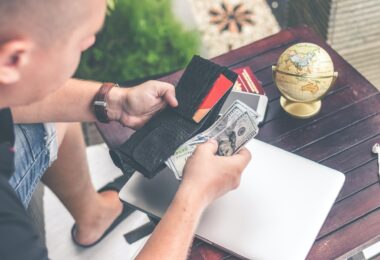More than anything else, nutritionists point to excessive sugar consumption as the reason why most people are unable to maintain a healthy diet.
Eating sugar excessively is caused by a need for a “reward”.That’s because sugar stimulates the brain to release serotonin and dopamine – the ‘feel good’ chemicals; as well as endorphins that calm and relax us.
This creates a kind of “high”, and like all other highs, it does not last. That means that when you come down from it, you are left wanting more. While it can be difficult to break a sugar habit, the following steps can help you reduce your cravings and essentially help break your addiction altogether.
1. Start With Coffee Or Tea.
A lot of people put a lot of sugar in their coffee and tea. If you do this, you can start training yourself to get used to less sugar with these drinks. You can start slowly. Simply add one fewer spoonful or packet of sugar.
The drink may taste less sweet, but if you stick to this, you will quickly adjust to it. In fact, you will come to like it this way. Then, cut back your sugar by one more portion. Over time, you may even come to prefer your coffee or tea without any sugar at all! This step not only reduces the sugar in your diet, it will also demonstrate that reducing your sugar consumption is not as tough as you thought it would be.
2. Avoid Artificial Sweeteners.
Replacing real, refined sugar with artificial sweeteners will not help you kick your sugar addiction. This is because artificial sweeteners have the same chemical effect on your brain. They still act to stimulate your craving for more sweetened food and drinks. If your “diet” cola is followed by a candy bar or sweet pastry, this won’t reduce your.
total sugar consumption, right? Not to mention, artificial sweeteners are also linked with a large number of unpleasant symptoms such as depression, migraines, anxiety, digestive problems and many more.
3. Switch To Snacks With Less Sugar.
Look at the snacks you currently eat. How high is their sugar content?
Even full grain cookies or yoghurt contain more sugar than one would think. Low fat yoghurt, for example, simply replaces the fat with sugar.
on’t be fooled by ‘diet’ snacks. Many of them contain artificial sweeteners that make those snacks taste even sweeter. As already mentioned, this can actually increase your craving for sugar.
Look for alternatives with lower sugar content. There are many tasty options, like nuts, cheese and olives. Vegetables are great because you can basically eat as much of them as you want. If you stick with these snacks for a while, you will actually come to prefer them.
4. Reduce The Amount And Frequency Of Sugary Desserts.
If you’re used to having dessert after every meal, slowly reduce them. Start with one less, and continue week after week. This is a habit like any other.
If you reduce your sugary desserts from seven times a week to six, and continue reducing, you will get used to having them less often.
There are easy substitutes. Fresh fruit with a dollop of whipped cream is a great alternative. You can also put off dessert and replace it with a low-sugar or sugar-free snack later in the evening. When it comes to dining out, get out of the habit of always ordering a dessert. Settle for a nice cup of coffee or tea instead.
5. Keep Your Meals Diverse.
An imbalanced diet can lead to sugar cravings. This is especially true if your diet is lacking in healthy fats or proteins to keep you satiated.
Refined starchy foods – such as pasta, white bread or white rice – leave you feeling full right after you eat them, but they are digested quickly. This causes your sugar level to spike upward. Soon after however, your sugar level drops drastically, causing you to crave for more.
Proteins and fats do not have this affect. That’s why it’s important to have meals with a good balance of macronutrients. Replacing refined grains with whole grain varieties also helps.
6. Get More Fiber In Your Diet.
Fiber is not only important for healthy digestion; it also helps combat sugar cravings. Fiber acts to slow down the rate at which sugar is absorbed into your system, thus preventing a sugar spike, which is inevitably followed by a drop that leads to cravings.
Like protein and healthy fat, fiber also helps you feel full longer. Try to include some in all your meals.
7. Sprinkle Sweet Spices.
There are certain spices that can satisfy cravings for sugar. Studies show that cinnamon, for example, controls you blood sugar level and helps prevent those pesky sugar spikes.
You can use cinnamon in a number of foods: in oatmeal, on roasted vegetables, rice pudding or sliced apples. Other helpful, sweet spices that can be used to control blood sugar are ginseng, fenugreek and cloves.
Go ahead and experiment!
8. Get Enough Chromium, Magnesium And Zinc.
Adequate amounts of these minerals are shown to help your body metabolize sugar more quickly and burn it more efficiently. Low levels of them, on the other hand, often lead to sugar cravings.
So make sure you include foods that are high in these nutrients. These include leafy green vegetables, seeds, nuts, bran, whole grains, green beans and dark chocolate.
9. Avoid Skipping Meals.
You might have heard of the term ‘hangry’. It describes a combination of feeling hungry and angry at the same time. If you have a sugar addiction, you’ve probably experienced this. This feeling results from a combination of low blood sugar – which makes you feel very hungry – and then in turn causes you to feel angry. This can happen when you try to ignore hunger and go too long without eating.
When you skip a meal, your body begins to crave fuel. At some point, you give in to your hunger and satisfy it as fast as possible – typically with easy-to-get snacks, high in sugar content. Be aware of your diet and make sure to get three balanced meals each day!
10. Drink Enough Water.
If you don’t drink enough water, your body can mistake thirst for hunger and compel you to eat more than you actually need to. This can also lead to unhealthy weight gain. Drinking water is actually a great way to combat excess weight because it helps make you feel full.
Many people on a diet drink a lot of water in order to help them lose weight. So keep a bottle or glass of water around and drink often – especially whenever you feel a hunger pang between meals.
11. Beware Of Advertisements.
Advertisers know that we ‘eat with our eyes.’ That’s why they flood us with pictures and images of seductive, mouth-watering foods. Research shows that food advertisements stimulate the desire to eat, especially in those people who already have a problem controlling their diet.
Beware of the temptation that may hit you whenever you see a picture of a donut or gooey candy bar. If you are aware of what is going on, you will be better able to fight it. Also think about unfollowing Facebook pages or Instagram accounts that advertise sugary foods.
12. Do Things That Make You Happy.
Find something you enjoy doing, and make time for it every day. When you engage in something you really love doing, it naturally raises the levels of your serotonin, dopamine, and endorphins.
Increased levels of these substances act to maintain a healthy balance of acetylcholine in your brain. And this in turn will significantly reduce your cravings for sugar.
13. Get A Handle On Your Feelings.
Sugar cravings don’t only have physical causes – you can also be affected psychologically. We can all be overcome by strong emotions at times, but some people have a really hard time coping with them. It’s easy to reach for sugary foods to cope when you feel stressed or depressed.
Since sugar triggers the brain to make us ‘feel’ better; it really does serve as ‘comfort food’. Yet, too much of it can actually increase the risk of depression, creating a cycle that’s difficult to break out of. So what can you do instead of reaching for sugary food?
The next time you’re feeling low or depressed, take some time to deal with your feelings. Talk about them with someone you can confide in, or go for a walk and analyse them. Turn to a professional if you need to.
14. Get Sufficient Rest.
According to research, the amount of sleep you get is directly related to the strength of your cravings for sugar. The evidence is clear: people who do not get enough sleep, crave sugar. It just makes sense.
If you do not get enough rest, your body will crave sugar for the quick energy it can deliver. You automatically reach for foods or drinks loaded with sugar. This can work to deliver a temporary boost, but it can result in a poor diet and weight gain in the long term.
Realizing that you have a problem is the first step in dealing with it. But it’s not always easy. A sugar addiction acts much like an addiction to drugs. If you radically reduce your sugar intake, you may experience withdrawal symptoms such as moodiness, irritability and lethargy.
Cravings for sugar can also grow more intense during the withdrawal period; so going ‘cold turkey’ may not be for everyone. The best approach is to use the steps presented here, to help you slowly change your diet. Also, keep your motivation in mind, so that you can control your urge to consume sugar. If you manage to resist the cravings, they will become weaker over time, and they will eventually be gone.
Have you ever tried to break your sugar addiction? If so, how did you go about it?
And how long did you manage to stay away from it? What causes you to give in to your cravings?
Let us know!







